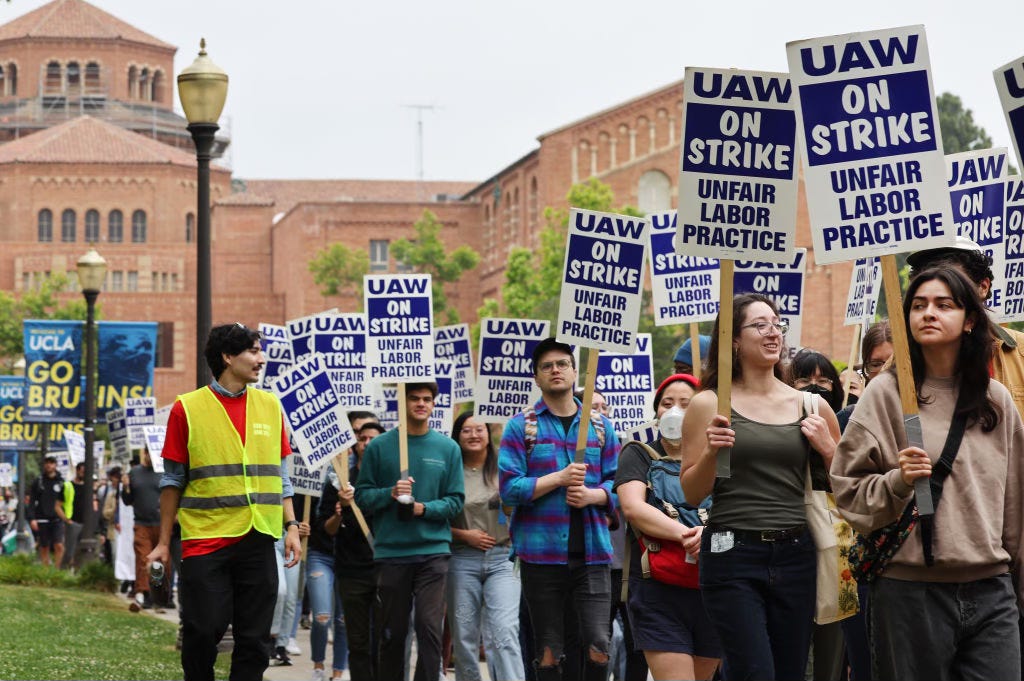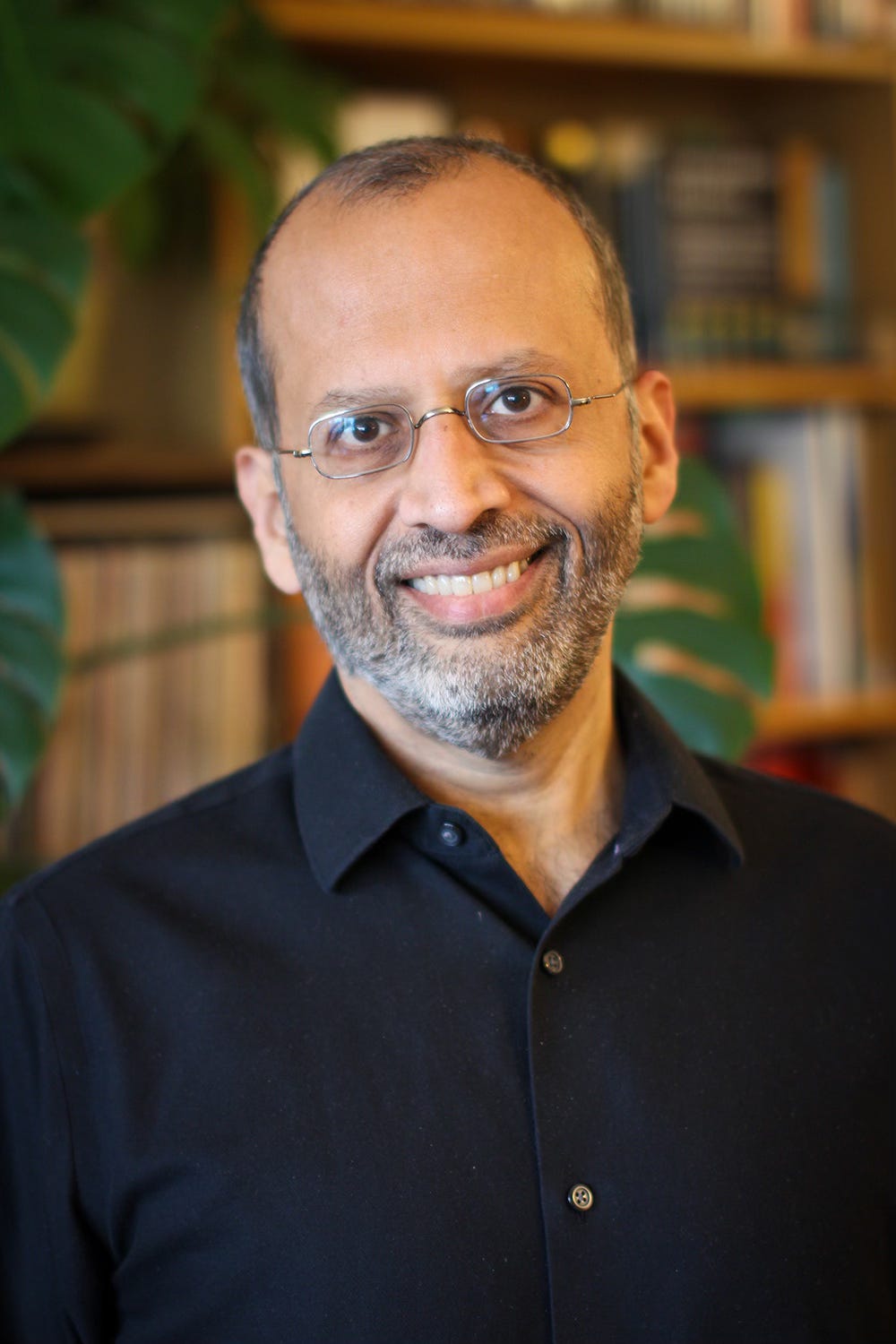Closing the storytelling gap
Organizer Deepak Bhargava on the narratives that move people, the gap between electoral and movement politics, and what it takes to change the country
Until this past month, the conservative right has held a virtual monopoly on effective political messaging in this country. Kamala Harris’s sudden rise to the top of the presidential ticket and the ensuing strategic shifts have done more to address this deficit at the federal level than any political event in recent memory, but there’s still plenty of work that needs to be done if we are to see any lasting progressive changes in how this country is run.
We spoke with longtime organizer and current president of the JPB foundation Deepak Bhargava about how the American left can more effectively use narrative to further the progressive agenda while also pushing back against the intuitively attractive, yet morally bankrupt “deep story” — characterized by aggrieved heroes and vulnerable villains/scapegoats — being spun by more authoritarian parts of the political sphere. Our wide-ranging conversation begins with a diagnosis of the shortcomings of a purely technocratic approach to federal governance in an electoral system based on winning hearts and minds and ends with a few potential solutions and reasons for hope that sound surprisingly achievable — because they are. But it all begins with identifying and telling a progressive version of the deep story, one where any member of the working class can see themselves as a contributing part of a grander whole.
It’s worth noting that this interview took place before President Biden decided to drop out of the race and endorse Vice President Harris. Since then, with the help of Tim Walz, the Democrats have taken bold strides in developing a cohesive and resonant narrative to “compete for the hearts and minds of a majority of the country,” as Bhargava so elegantly puts it. But there’s still work that needs to be done as far as identifying and narrativizing progressive policies that can translate good vibes into good governance and electoral success.
A request for those who haven’t yet joined us: The interviews and essays that we share here take research and editing and much more. We work hard, and we are eager to bring on more writers, more voices. But we need your help to keep this going. Join us today to support the kind of independent media you want to exist.
Looking at what’s been achieved under the Biden administration — a pretty progressive policy platform for a Democratic administration, offering quite a bit to constituencies that have been very disappointed in the results. Why have Democrats failed so far to tell a story that's engaging enough to break through?
We sought to solve a puzzle. Why did sweeping progressive economic policy, including measures dear to my heart that had a dramatic impact on child poverty rates have so little political resonance or traction? And it's been an article of faith among liberals and progressives that if you deliver for people, particularly economic benefits, there will, over time, be a shift in political allegiances. This is a transactional view of human motivation. It's a view that actually derives from economics the idea that we are calculating rational actors who are constantly doing these cost-benefit analyses.
And I think the problem is that that view of human nature is fundamentally wrong. And this is actually not a new problem. The Affordable Care Act, as important as it was, providing health insurance to millions of people, did not meaningfully shift people's political views, even of those people who were the direct beneficiaries of the policy.
Even among people who benefited directly, when they're asked about what they thought of the ACA specifically, they often rejected it, which is a real conundrum.
Exactly. And so I think it's important to say it's hugely important to deliver material improvements to people's lives. So it's not a question of whether one should do it. It's really that as a theory of politics, it is not working and it is broken. And so the question you're asking is, what's going on?
And I think what's happening is that we are really living in the cultural wreckage of neoliberalism, this economic paradigm of low taxes, deregulation, and less government that we've been living with for 50 years. And there's all the inequality that that has produced. But in addition, there's tremendous social dislocation, increasing addiction rates, record rates of loneliness, suicidality, and social disconnection. People feel bad. A big source of human motivation is to feel a sense of belonging, to be seen, a feeling of recognition, and community unity.
A technocratic policy agenda is not responding to the intensity of that felt desire. And authoritarian movements here in the United States and around the world are speaking directly to that sense of dissatisfaction.
I think everyone would agree that authoritarians are doing that more successfully than people on the left, or on the Democratic side of the equation. These authoritarians offer very little material improvement and in fact, might be offering policies that are destructive to their own constituencies. But they're still better at playing the rhetorical game. How does that work, in your understanding? And what's the alternative here?
Well, I think the first recognition here is that authoritarian movements have no interest in actually solving the problems that they're talking about. The whole logic is different. It's to animate identity and emotion. They are operating at the level of deep story, where there are clear villains. There are heroes who have been wronged. And there are identities, deep social identities that are sometimes latent, like racial identities, that are activated by the story and become powerful vectors for people's engagement in politics and civic action.
And many of the kind of technocratic, liberal, and progressive stories lack a deep story.





